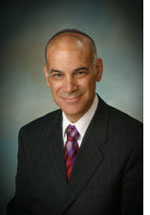By Rabbi Leonard Rosenthal

SAN DIEGO — This Shabbat is Rosh Chodesh Elul, the first day of the month of Elul. During Elul we recite Psalm 27, the Psalm of Repentance, during morning and evening services. On weekdays we also sound the Shofar during minyan services. Psalm 27 and the call of the Shofar remind us that Elul is the month which leads us to the High Holy Days, which begin in Tishrei.
During Elul, we consider our words and deeds and prepare to confess our sins to ourselves and God on Rosh Hashana and Yom Kippur. We prepare to do the hard work that teshuva, repentance, requires.
Parashat R’eih, which we will read on Shabbat morning, is a very appropriate Biblical selection for the beginning of Elul. Its first line: “See, this day I am setting before you blessing and curse: blessing, if you obey the commandments of the Lord your God that I enjoin upon you this day; and curse, if you do not obey the commandments of the Lord your God, but turn away from the path that I enjoin upon this day…” (Deut. 11:26-28)
Moses’ words remind the Israelites and us that we have choices to make: we can either live lives of goodness, kindness, and integrity, or lives of evil, callousness, and deception. The choice is up to us.
Rabbi Mordechai Cohen notes that Moses does not tell the Israelites: “See, today I set (past tense) before you” but rather: “See, today I am setting (present tense) before you.”
Teshuva He quotes the Vilna Gaon: “This is to teach us that each day human beings have the choice between choosing good or choosing evil. Each day we have the opportunity to do teshuva and begin life anew. The way of teshuva and goodness can be arduous or simple. The faster we recognize our faults, the faster we can correct them.”
Furthermore, writes Rabbi Cohen, as we find in Pirkei Avot, the Ethics of our Ancestors, “Every day a voice cries out from Mt Sinai: ‘Woe to them who defame the Torah.'” (Pirkei Avot 6:2)
If we listen carefully, we can hear the commanding voice of God each and every day of our lives.
Although the High Holy Days are a particularly appropriate opportune time to evaluate our behavior, goals, and aspirations, we are also obligated to do so each day that we are blessed with life.
*
Rabbi Rosenthal is spiritual leader of Tifereth Israel Synagogue in San Diego. You may comment to him at leonard.rosenthal@sdjewishworld.com